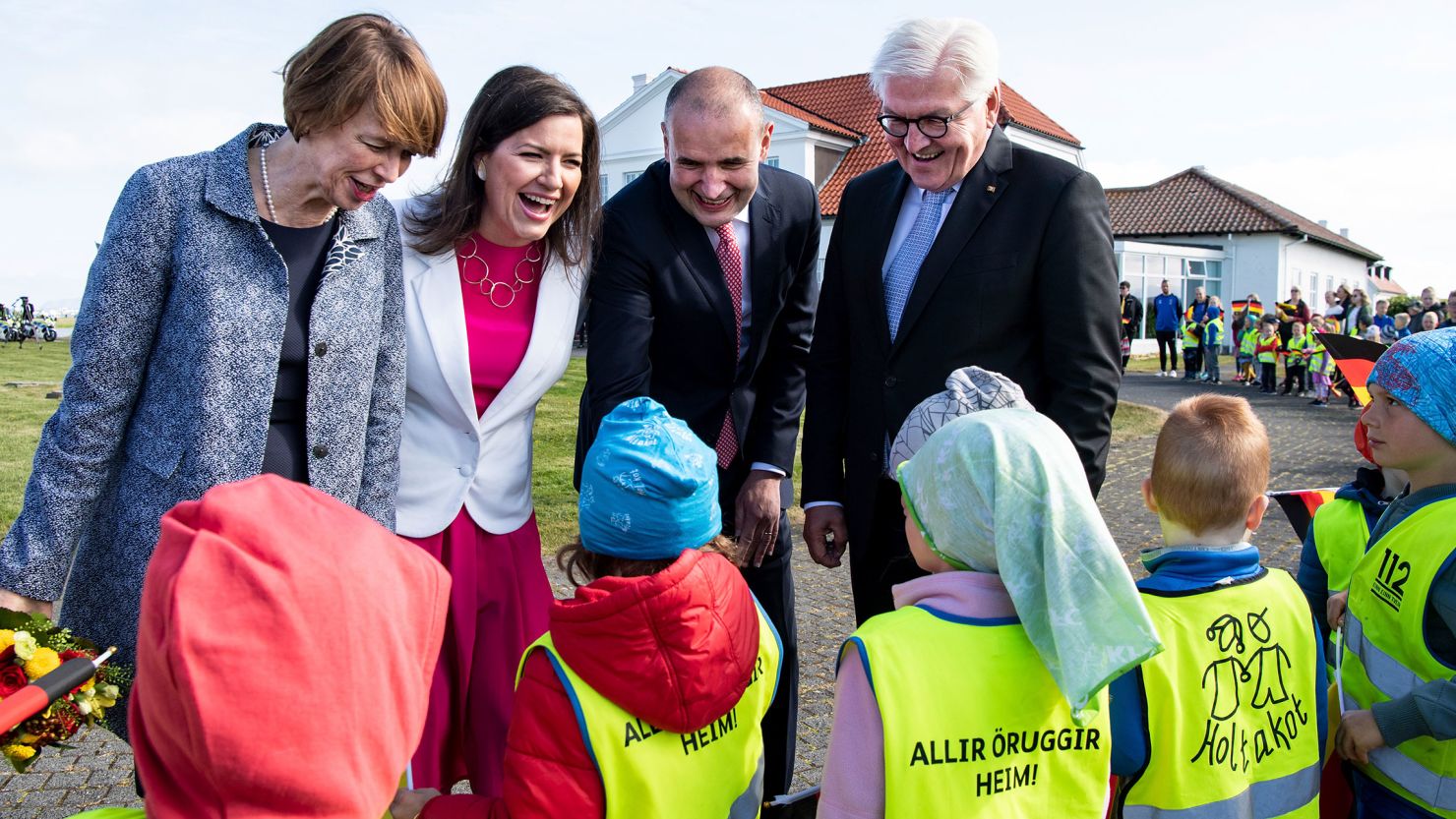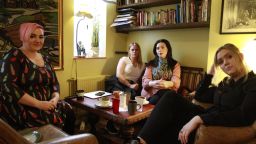Editor’s Note: Eliza Reid is a Canadian-Icelandic writer and the First Lady of Iceland since 2016. She is the co-founder of the Iceland Writers Retreat and author of “Secrets of the Sprakkar: Iceland’s Extraordinary Women and how they are Changing the World.” The views expressed in this commentary are her own. View more opinion on CNN.
One of the most vivid snapshots of my early years in Iceland is from an unusually mundane location: a board meeting at the male-dominated software startup where I worked in Reykjavík in 2003.
Nothing seemed out of the ordinary to those (mostly men) in attendance. But to me – a 20-something immigrant from Canada – it wasn’t that the board’s chair was running the meeting while her young daughter nursed at her breast, but rather the unremarked banality of it all: no one batted an eye at this.
Other moments over the nearly two decades since have gradually revealed to me a society where women are treated on par with men, or, at least, the intention to do so exists.
Many are glimpses from my own life: My husband took several months of paternity leave from his job as a historian (before he was elected Icelandic president) after the births of each of our four children.
Our daughter has my surname and not her father’s. My 40-something friend just had her first child with the help of an anonymous sperm donor and will face no stigma for raising her boy alone.
My trans friend Ugla can go to the swimming pool with me and not be forced to use the changing room that doesn’t represent their true gender. And while I serve in the immensely rewarding and unofficial, voluntary position of first lady, I continue to work, including running an annual writers’ retreat I co-founded.
These are varyingly commonplace snippets of a country that has topped the World Economic Forum’s Global Gender Gap index for the past dozen years. It’s probably also not a coincidence Iceland is also the world’s most peaceful country, one of its happiest, and its population boasts one of the world’s longest life expectancies.
Sometimes a fawning international press describes us as a “gender paradise,” though those of us who live here are quick to add the word “but” to that statement. Iceland is not a gender paradise. Only one company listed on the Icelandic Stock Exchange is run by a woman.
Women of foreign origin face additional prejudice, discrimination, and isolation. And the entire country is being taken to the European Court of Human Rights by a group of women who believe their rights were violated by the treatment they received after they brought accusations of gender-based violence to the police.
I am often asked if there is a blueprint other countries can follow on how to achieve the level of equality we have in Iceland. It’s not that simple. We have had strong female role models, including the world’s first democratically-elected female head of state, and the world’s first openly gay head of government. We are also a tiny country, with a population smaller than that of many cities, so we need to make sure everyone is chipping in.
The push for gender equality in Iceland has been decades in the making. The difference individuals can make was especially highlighted during the legendary “Women’s Day Off” in October 1975, during which 90% of Iceland’s women took the day off, not showing up to their paying jobs, and refusing to take part in unpaid labor in the home.
Predictably, the country shut down, and the day galvanized the nation. Regular “Women’s Day Off” events are still held to protest the ongoing wage inequality between the sexes.
There are policies and laws that help to facilitate this march toward parity: government-paid parental leave for both parents; heavily subsidized child care; gender quotas for the boards of publicly traded companies; a law that states companies must prove they are paying equal pay for equal work. They show we have passed the tipping point of arguing whether trying to attain gender equality is a worthy goal and are now debating how to achieve it.
Yet policies can only take us so far. As individuals, we all have a part to play. Gender equality is not a “women’s issue” that elected officials are tasked with achieving. It does not pit one gender against another. Gender equality is a human rights issue and working to improve it benefits everyone.
As individuals, we can do a lot, from pursuing jobs we want even if our gender is underrepresented there, to consuming media, literature, music, art, and sport with a lens for diversity and inclusion.
We must remain vigilant. Change doesn’t only come from the all-too-often glacial pace of legislative adjustments and public opinion shifts; it comes from stringing together many infinitesimal moments of progress. The little things matter; in tiny Iceland, we know this lesson well.
We can all be role models, whether that’s in our families, communities, workplaces, educational institutions, or places of worship. It’s up to us to use our voices, and to help amplify the voices of others who need to be heard.
Get our free weekly newsletter
The ancient Icelandic word “sprakkar” means outstanding or extraordinary women. Yet the word is not exclusive to people who understand that language. There are “sprakkar” all around us. On this International Women’s Day, I encourage you to recognize them, to elevate them, to amplify their voices, and to remember the influence we can all have in creating a more equitable world for everyone.

